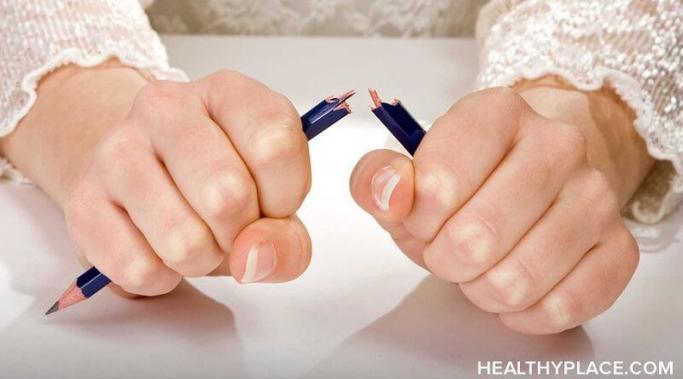Anxiety can affect decision-making. Anxiety is a fact in the lives of many individuals, but for some it is much more present and even crippling (What is Anxiety? Anxiety Definition). For the extremely anxious, making decisions can be both difficult and burdensome.
Treating Anxiety
Dating is awkward and many feel anxiety about dating. Throw some clinical anxiety into the mix and you've got a disaster on your hands. But you can minimize anxiety about dating.
Anxiety, to put it simply, is apprehension over the unknown but you can reduce your anxiety in 10 minutes or less. Whether you are anxious about possibly leaving the oven on, or your five year plan, anxiety manifests itself as both physical and emotional responses in the body. This may leave you feeling exhausted, overwhelmed, and desperate for relief (Why Am I So Tired? Anxiety And Fatigue). Check out these 10 ways to reduce your anxiety in 10 minutes or less for help.
Empaths are often anxious. Empathy is described as the ability to understand and share the feelings of another. All humans have the ability to empathize in moments of tragedy, even if they have not experienced a similar situation. However, empathy is an innate trait that is more acutely developed in certain members of the population (Intense Anxiety And The Highly Sensitive Person). Empaths are individuals who are unconsciously affected by other people’s moods, desires, thoughts, and energies. They can, literally, feel the emotions of others in their bodies and attempt to carry these emotions on their shoulders without ever being asked. It's for this reason that there are often anxious empaths.
Hello, I am Whitney Hawkins. I am both excited and anxious to be writing for Treating Anxiety. If I’m being honest, this is the first time I have publicly admitted that I have struggled with anxiety. After years of panic attacks, some therapy, and a lot of breathing into paper bags, I am here to set the record straight about mental illness stigma and deliver my own anxiety management strategies and techniques.
As 2015 winds down, let me start by wishing all of you a Happy New Year in 2016 from the Treating Anxiety Blog. 2015 was difficult for me, and I can't say I'm sorry to see it go. But, I also end it on a hopeful note due to all I've learned about myself, living with anxiety, and simply being human. Which, sadly, leads me to my second wish. I also wish you all a fond farewell. This will be my last post from Treating Anxiety.
Managing our anxiety about terrorist attacks is hard. It's so abhorrent and baffling that it's difficult to get our minds around it. It's extremely upsetting.
Terrorist attacks in Western countries like France and the United States are a very recent phenomenon. Here in the West, we're still adjusting to the fact that terrorism has become part of our experience, too. It's no longer something that only happens in far-away places that we've never heard of, or know very little about. As we're managing our own anxiety about terrorist attacks, we're also having to learn how to discuss war and terrorism with our children.
I've been reading the Debunking Addiction blog lately, and it's gotten me thinking about how my early sobriety triggered my anxiety. Early sobriety generally refers to the first year of not drinking after sobering up. My experience has been that early sobriety will trigger anxiety, especially if you already have an anxiety disorder, which I believe many problem drinkers do (Addiction and Mental Illness: The Struggle to Stay Sober and Sane).
Sleep deprivation can be a real danger to those of us with anxiety disorders, especially in the long term. Chronic lack of sleep has been linked to everything from poor concentration and being more prone to accidents, diabetes, heart disease, and early mortality. The irony is that mood disorders, like anxiety, increase sleep deprivation, which, in turn, increases anxiety. Here is some important information about the dangers of anxiety-related sleep deprivation, and some steps you can take to increase the quality of your sleep.
Does your anxiety ever make you feel like a failure? Does it ever make you feel stupid? A reader's comment on my post, Top 10 Anxiety-Friendly Jobs really got me thinking about this issue. They indicated that anxiety at work had caused them to exhibit some of the common signs of low self-esteem, including difficulty holding down a job, and becoming easily confused and forgetful. Because I've struggled mightily with these same issues at work, it also got me thinking about other reasons why anxiety makes you feel stupid and like a failure.









